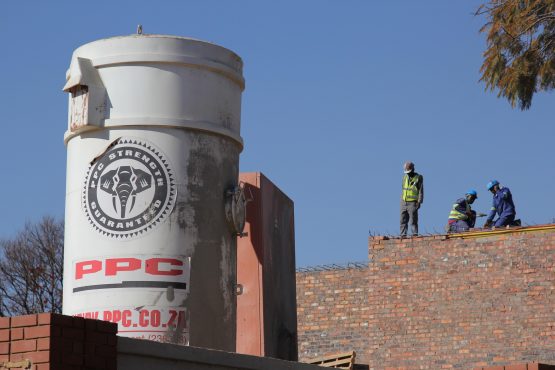
Imports of cement into South Africa increased by
293% year-on-year in July – and are 17.5% higher for the first seven months of
this year – despite the lack of major infrastructure projects and the severely depressed
construction and building environment in the country.
Construction market intelligence firm Industry
Insight says cement imports in June were again predominantly from Vietnam with,
notably, none from Pakistan during the past two months.
It says 104 099 tons of cement with a customs value
of about R72 million was imported into South Africa in July.
This was marginally lower than the 149 522 tons
with a customs value of almost R100 million that was imported into the country
in June, the highest level of cement imports in one month since February 2015.
A
R440m punch in the stomach
Industry Insight says a total of 631 059 tons of
cement with a customs value of more than R440 million had been imported into
South Africa in the first seven months of this year.
It says this followed an overall 85% increase in
cement imports in 2018.
South Africa’s major cement producers, in an
initiative driven by The Concrete Institute (TCI), reported last month that
they had applied to the International Trade Administration Commission of SA
(Itac) for what they refer to as “safeguard action” against cheap cement
imports.
A letter was also sent to the Department of Trade
and Industry (Dti) to advise the department of their plans to seek approval for
“special designation” of South African-produced cement to be used in state
infrastructural projects.
‘Puzzling’
aspect
Industry Insight economist David Metelerkamp says
the high level of cement imports at a time when the construction environment is
so depressed has puzzled him some degree.
Metelerkamp believes Vietnam and Pakistan saw South
Africa as an easy target country in which to dump their cement. “Maybe they see
the fact that cement prices may be higher in South Africa than the market would
expect [as making] it an easy target.”
Metelerkamp says the industry is not calling for a
total ban on imports but rather seeking tariffs to safeguard the local
industry.
TCI chief executive Bryan Perrie says imported
cement is “undercutting” the local industry by up to 45%.
Metelerkamp points out that locally produced cement
is subject to additional regulatory requirements, including the newly
introduced carbon tax, with escalating energy costs and labour union pressures
also adding to production costs.
He says local capacity is also negatively affected
by weak consumer demand in line with poor economic growth and a contraction in
public sector infrastructure expenditure.
Government
intervention on the cards
Njombo Lekula, MD of PPC’s Southern African
businesses, says government and Dti are engaging the industry about cement
imports but have not yet reached a solution and a further meeting is scheduled.
But Lekula says business and government in South
Africa have a big problem in that they are suspicious of one another, to the
detriment of the country.
Lekula says the domestic cement industry is not
only dealing with imports but also internal competition from extended products.
This overcapacity in the market has the same effect on the industry as imports.
He says that while the domestic industry has an
annual production capacity of 18 million tons, demand is languishing at 13
million tons, with the two million tons of imported cement that comes into the
country each year adding to the demand deficit.
Mergers
likely
Lekula admits that at some point consolidation in
the industry in the form of mergers is “a logical thing and will probably have
to take place”.
“But all conditions will have to be correct for
that to happen,” he adds.
Commenting on extended cement products, Lekula says
there are probably 64 different bags of cement available in Gauteng today, more
than half of which are extended with ash, which affects quality and pricing.
But Lekula says cement prices are already “rock
bottom” and the extended cement products have started to impact the
sustainability of the industry.
Lekula says there are four major producers in
Gauteng and all of them are “sort of fighting for survival”.
He says that when the costs are broken down and compared to current pricing, the industry “at this point is unfortunately not really sustainable”.https://www.moneyweb.co.za/news/industry/imported-cement-volumes-up-a-staggering-293-in-july/
More news
- PART 2: HARNESSING THE POTENTIAL OF HIGH SULPHUR FLY ASH IN CONCRETE PRODUCTION
- PART 1: HARNESSING THE POTENTIAL OF HIGH SULPHUR FLY ASH IN CONCRETE PRODUCTION
- PART 2: DESIGN AND CONSTRUCTION OF SLAB-ON-GROUND: APPLYING ACI 318
- DESIGN AND CONSTRUCTION OF SLAB-ON-GROUND: APPLYING ACI 318
- DOK-ING’s innovative electric mining equipment unveiled at ElectraMining

